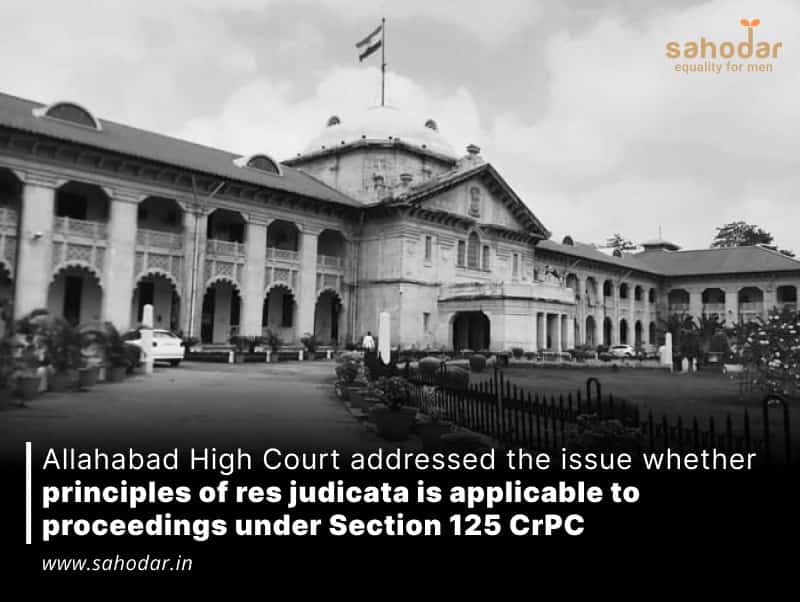Justice Shiv Shanker Prasad’s bench was handling an application to overturn a decision made by the Family Court in a case registered under Section 125 Cr.P.C. The applicant had requested support under Section 125 Cr.P.C., but their application was rejected.
The case involved the marriage of the applicant and opposite party no. 2. After the wedding, the husband and his family members demanded an additional 20 lakh rupees as dowry. When the applicant’s family did not meet this demand, the husband and his family evicted the applicant and her children from their home.
The applicant, an unskilled housewife with dependent children, was unable to support herself and her family. As a result, she filed a Criminal Misc. application under Section 125 Cr.P.C. to request maintenance. However, the court rejected the application on 1.3.2017 due to a lack of prosecution.
Following the initial rejection, the applicant filed another application under Section 126 (2) Cr.P.C. before the Family Court, but it was also dismissed by the Principal Judge.
Undeterred, the applicant filed a new application under Section 125 Cr.P.C. with the Principal Judge Family Court. Unfortunately, this application was also rejected on the grounds of res judicata, which means that the matter has already been decided by a competent court and cannot be retried.
The bench was tasked with examining the following issues:
(a) Does the principle of res judicata, as per Section 11 of the Cr.P.C., apply to proceedings under Section 125 Cr.P.C.?
(b) Will the principle of res judicata apply to the applicant’s case under Section 125 Cr.P.C.?
(c) Can the applicant submit a fresh application under Section 125 Cr.P.C. even if their previous applications under Sections 125 and 126 (2) Cr.P.C. were dismissed for non-prosecution?
The bench noted that although an application under Section 125 (1) Cr.P.C. is made before a criminal court as defined under Section 6 Cr.P.C., the decision made by the court pertains to a purely civil right. Therefore, the order passed by the Magistrate under Section 125 (1) Cr.P.C. regarding maintenance is the culmination of a civil matter. However, Section 125 (3) of the Code grants the Court the power to impose a sentence of imprisonment if the order made under Section 125 (1) Cr.P.C. is not obeyed. As a result, the proceeding is considered to be quasi-civil and quasi-criminal in nature.
The High Court referred to the case of M. Nagabhushana v. State of Karnataka, in which the Supreme Court held that the principle of res judicata applies universally to both civil and criminal proceedings, in order to secure the interest of justice and prevent multiple litigations.
In the case of proceedings initiated by an application under Section 125 Cr.P.C., the High Court opined that the principle of res judicata, which means that an issue that has been definitively settled by a judicial decision cannot be tried again, will apply. This principle aims to prevent multiple proceedings and bring finality to an issue that has been decided in a previous suit between the same parties or their privies. This helps to avoid vexatious litigation and save the valuable time of the court.
The bench referred to previous judgments and observed that if a previous case was not decided on its merits and was instead resolved through a compromise without giving the claimant a chance to present their case, then a subsequent case seeking the same relief would be permissible. The High Court held that the principle of res judicata only applies if the matter in question was directly and substantially in issue in the former cases between the same parties and was finally decided by a court competent to try the subsequent case. However, if the earlier case was not finally decided or was resolved without considering the merits or giving the applicant a chance to be heard, then the principle of res judicata would not apply to a subsequent case seeking the same relief. Based on this reasoning, the bench allowed the applicant’s case.
Source: https://lawtrend.in/whether-principles-of-res-judicata-apply-to-the-proceedings-under-section-125-crpc-allahabad-hc-answers/

